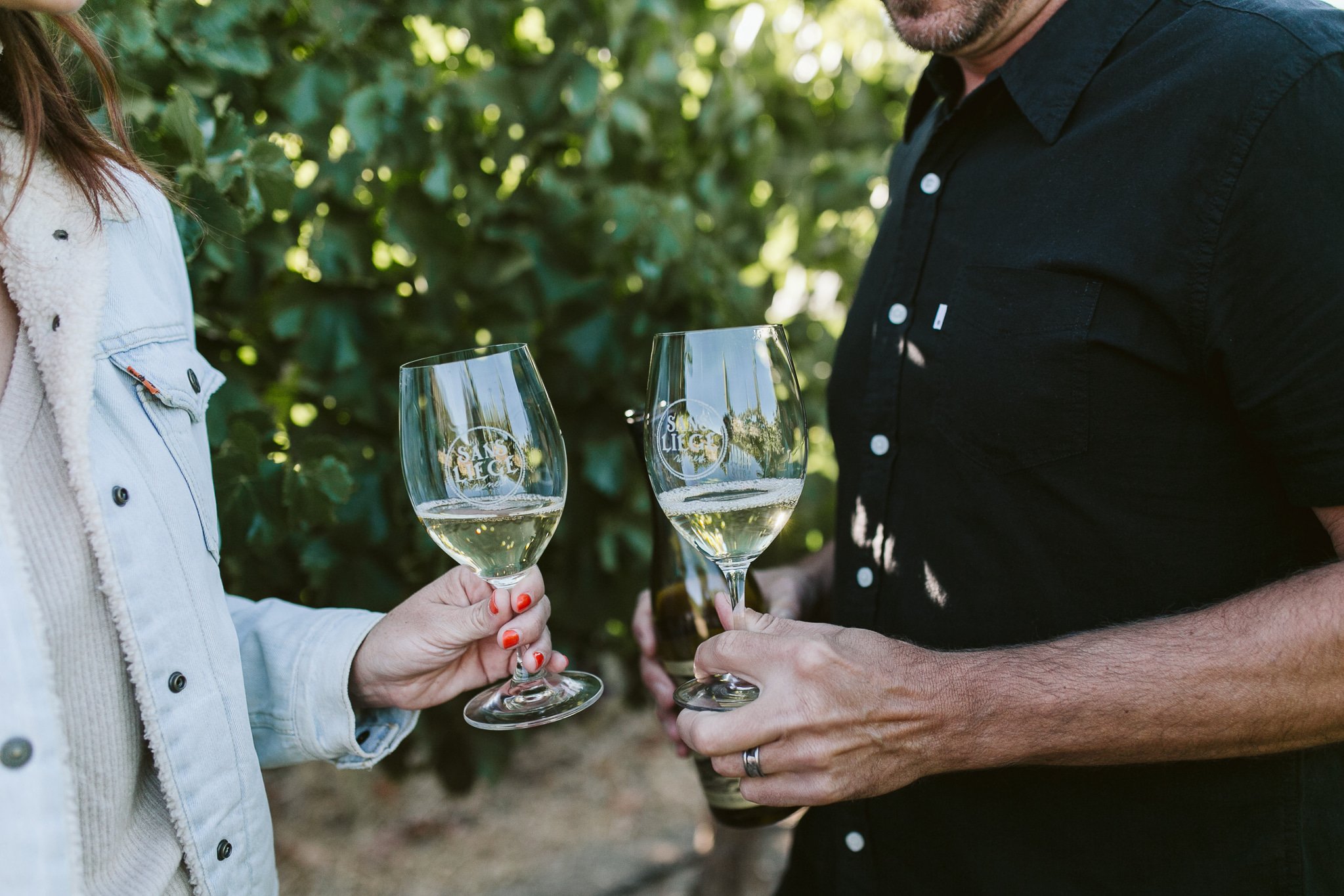
MY WINEMAKING JOURNEY
My journey in wine has been about forging my own path and creating the wines I am passionate about.
In 2005, I embarked on a memorable journey through the Rhone Valley in France, tasting my way from the Northern Rhone to Châteauneuf-du-Pape in the south. During a visit to the cellar of Bernard Grippa, I found myself sharing a tasting with Fabrice, Bernard's son. I confessed my envy of their long winemaking history. Fabrice, who had just taken over winemaking responsibilities from his father, surprised me by expressing his own envy of us American winemakers, who have the freedom to craft wines as we choose.
This sentiment resonated deeply with me. A few years later, after gaining experience and honing my skills in the cellar, I launched Sans Liege. The name is a blend of the French word for "without" and the Old English word for "king," embodying the idea that winemakers in the US, particularly on California's Central Coast, are not bound by specific regions, varietals, or traditional styles.
My journey in wine has been about forging my own path and creating the wines I am passionate about. Starting with Grenache, I have since expanded to craft an array of wines, including white varietals like Viognier, Roussanne, and Marsanne; reds such as Syrah and Mourvedre; as well as various blends, sparkling wines, late harvest wines, and more.
- Curt Schalchlin
owner & winemaker
Winemaking Philosophy
I've been making wines for myself for 22 years and for others for 16 years through custom crush. In my most formative years, I was gaining experience with each vintage that most people would spread over two or three years. Not only was I crafting the wines I was passionate about, but I was also helping others chase their dreams—often very different from mine. These diverse experiences gave me some of my best insights and a well-rounded understanding of wine. Over the years, I've bottled over 700 different wines plus a couple hundred ciders.
I’m not sharing this because I think longevity alone deserves recognition. Frankly, I don’t believe that just doing something for a long time makes you good at it. Too often, people get complacent and lose their passion. That belief drives me—I never want to feel like my best work is behind me.
If we were to sit down together and open a bottle of wine, I could probably figure out how to create something similar for you. In essence, I know how to engineer wines, but at this point in my career, that’s the last thing I want to do.
My winemaking philosophy is to use as little of that knowledge about engineering wines as possible and just get out of the way. I select vineyards and wine growers that I find most interesting and commit to the role of a shepherd, guiding the grapes into wine. "Less is more" is the mindset. It's not about how much we drop fruit or manicure the vineyard, nor about how much we do in the cellar. The goal is to observe, make fewer but better choices, and allow the wine to speak for itself. The less I intervene, the more the wine can tell its story—the place, the season, the grapes themselves. Too much interference can obscure what naturally happens and overshadow the wine's true character.


